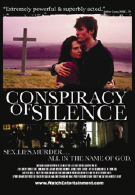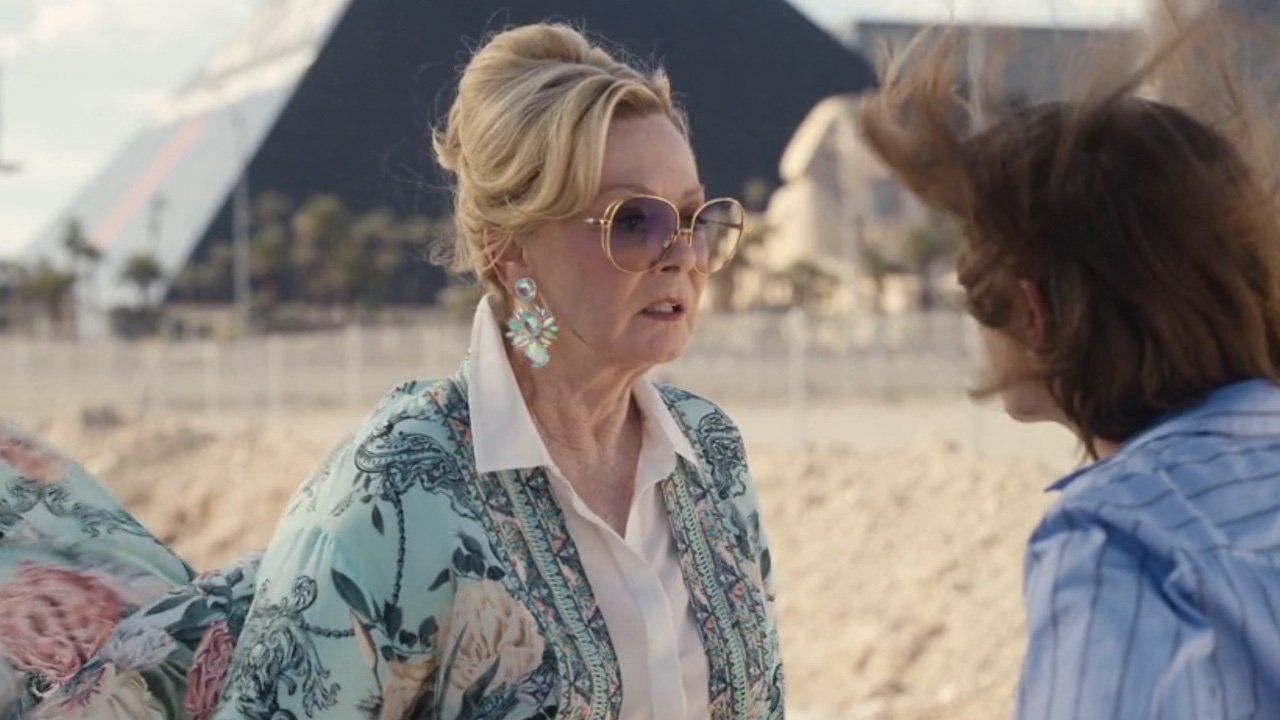Celibacy has been one of the most controversial subjects in the Catholic Church since its establishment more than two thousand years ago. Many have questioned whether the rule was made so that a Catholic priest’s bond with God would be a direct relationship (and all that more unique) or for the Church itself to obtain the land of its loyal servants after they died. You see, priests used to be able to marry. Conspiracy of Silence does not profess to answer the question of celibacy; it merely asks it.
Taken directly out of the headlines, Conspiracy of Silence opens with the unexpected suicide of well-respected priest Frank Sweeny (Patrick Casey), and quickly cuts to the expulsion of a young seminary student named Daniel (Jonathan Forbes). Daniel is suspected of breaking the vow after seen leaving the room of another student late at night, even though he was there to discuss religious writings with a group.
A local investigative reporter named Foley (Jason Barry) begins to tie the two incidents together, and in doing so, discovers that Father Sweeny was a homosexual who was HIV-positive. Foley had tried to expose the Church’s cover-up of him and other HIV-infected priests (who may or may not have been homosexuals) three years earlier. As the investigation continues, Foley deals with hinted threats against him and his family while Daniel struggles to decide where to place his faith: with the Church, where he would be forced to join in the cover-up, or with his former love, a local girl named Sinead (Catherine Walker).
Conspiracy of Silence is in many ways similar to In the Name of the Father, Jim Sheridan’s harrowing 1993 Oscar-nominated film about a Belfast youth falsely implicated in the I.R.A. bombing of a pub that killed several people and later was coerced by police into a confession. His father is also implicated in the crime and joins his son in prison for the next 14 years, where he dies. Upon release, the youth crusades to clear his father’s name (hence the title). Similarly, this film tells of an unjustly accused young man seeking retribution by exposing a wrong to the public (although these characters keep matters away from the courts), and hoping to ensure a loved one’s death was not in vain.
Yet the film, for all its similarities, never feels like an imitation. At a taut 87 minutes, Conspiracy of Silence is a solid, gripping film that ignores the temptation to go into hysterics and holier-than-thou attitude (two faults of the standard “crusade” drama) and tells a story with balance. The film is not blasphemous in its presentation. Rather, it details every plot point from (what appears to be) an unbiased standpoint. The viewer is given a chance to understand the situation the Church officials are put in upon hearing about the boy’s supposed relationship, and how the elimination of celibacy threatens to create chaos in the system.
We understand Daniel’s conflict so well because we see his life and future crumble before our eyes. The film shows Daniel with his friends, family, and love interest as he tries to piece his future together. With the Church now turning on him for reasons of appearance, we understand the boy’s conflict. Jonathan Forbes is quietly distressed, and his hometown smile makes the events even more heartbreaking. This is a man who, with the best intentions, only wanted to serve God, and as a result of religious politics might not be able to do so in an ideal way.
But the film occasionally suffers from flashbacks upon flashbacks, sometimes of scenes that occurred only minutes prior. First-time Director John Deery never fully trusts his audience to understand what is going on. This is a problem in only a couple of instances, but is a major distraction.
Conspiracy of Silence is still an immensely satisfying surprise. It serves to further caution viewers about the games religious officials play (not only the Church), and comforts them to know that their faith is not in what another commands them. Being torn between love and religion is not a sin, even if a man holding a cross tells you so.











